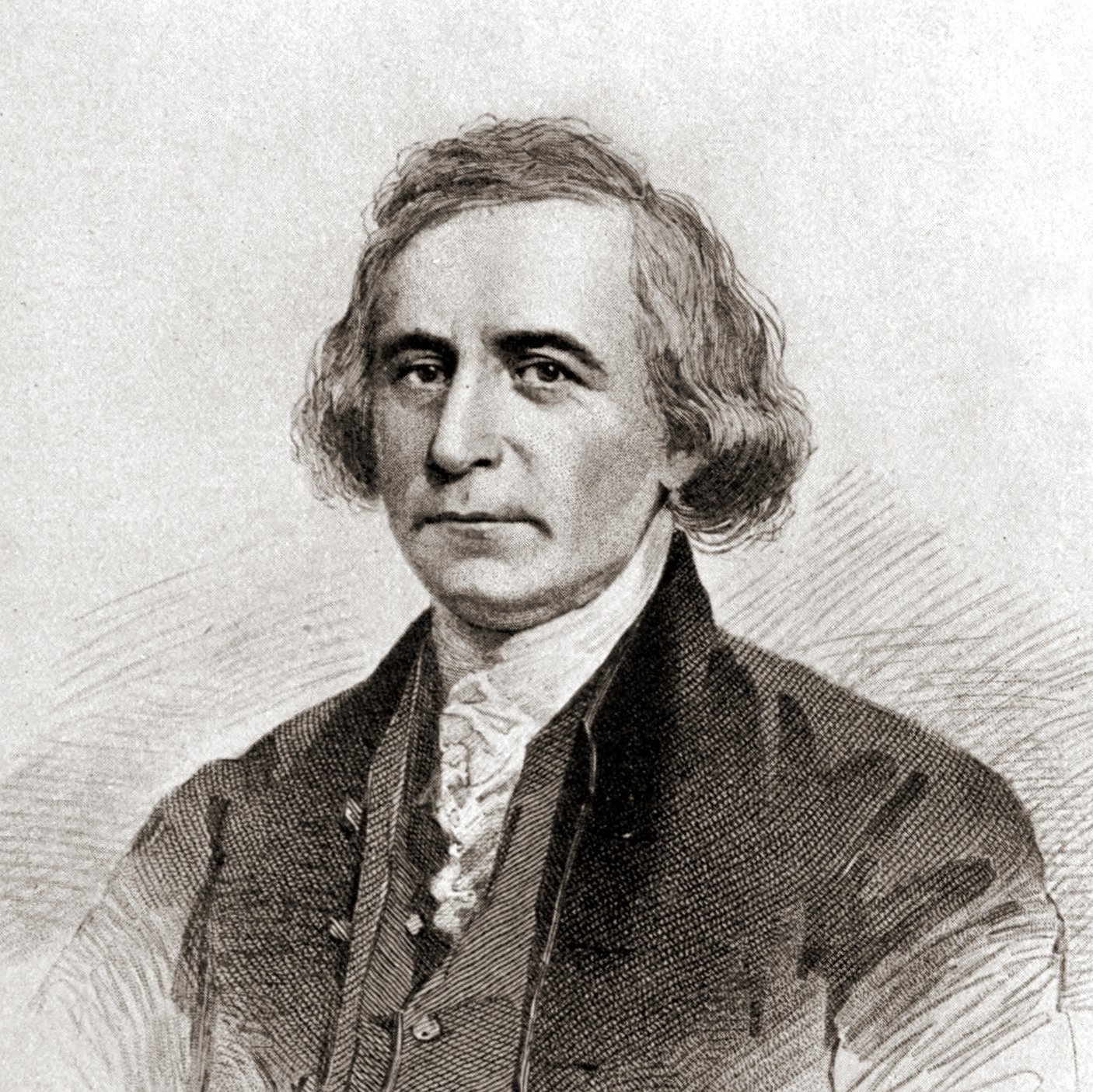On the Death of Captain Nicholas Biddle
Commander of the Randolph Frigate, Blown up near Barbadoes, 1776
What distant thunders rend the skies,
What clouds of smoke in columns rise,
What means this dreadful roar?
Is from his base Vesuvius thrown,
Is sky-topt Atlas tumbled down,
Or Etna's self no more!
Shock after shock torments my ear;
And lo!—two hostile ships appear,
Red lightnings round them glow:
The Yarmouth boasts of sixty-four,
The Randolph thirty-two—no more—
And will she fight this foe!
The Randolph soon on Stygian streams
Shall coast along the land of dreams,
The islands of the dead!
But Fate, that parts them on the deep,
May save the Briton yet to weep
His days of victory fled.
Say, who commands that dismal blaze,
Where yonder starry streamer plays?
Does Mars with Jove engage!
‘Tis Biddle wings those angry fires,
Biddle, whose bosom Jove inspires,
With more than mortal rage.
Tremendous flash!—and hark, the ball
Drives through old Yarmouth, flames and all;
Her bravest sons expire;
Did Mars himself approach so nigh,
Even Mars, without disgrace, might fly
The Randolph's fiercer fire.
The Briton views his mangled crew,
"And shall we strike to thirty-two?—
(Said Hector, stained with gore)
"Shall Britain's flag to these descend—
"Rise, and the glorious conflict end,
"Britons, I ask no more!"
He spoke—they charged their cannon round,
Again the vaulted heavens resound,
The Randolph bore it all,
Then fixed her pointed cannons true—
Away the unwieldy vengeance flew;
Britain, thy warriors fall.
The Yarmouth saw, with dire dismay,
Her wounded hull, shrouds shot away,
Her boldest heroes dead—
She saw amidst her floating slain
The conquering Randolph stem the main—
She saw, she turned—and fled!
That hour, blest chief, had she been thine,
Dear Biddle, had the powers divine
Been kind as thou wert brave;
But Fate, who doomed thee to expire,
Prepared an arrow, tipt with fire,
And marked a watery grave.
And in that hour, when conquest came,
Winged at his ship a pointed flame,
That not even he could shun—
The battle ceased, the Yarmouth fled,
The bursting Randolph ruin spread,
And left her task undone!
This poem is in the public domain.
This poem was first published as a pamphlet in 1781, by Francis Bailey of Philadelphia, in connection with "The Prison Ship."
Nicholas Biddle, born in Philadelphia in 1750, was a sailor from his boyhood. At one time he served beside Nelson in the British navy. In 1776, when the new frigate Randolph, of thirty-two guns, was launched at Philadelphia, he was made commander, and after several unimportant cruises he was placed over a small fleet of war vessels, with the Randolph as flagship. In March, 1779, he fell in with the British ship Yarmouth, and after a vigorous action of twenty minutes, the Randolph was blown up by her own magazine, only four men escaping with their lives.
Freneau has made several minor errors. The date 1776, which is found on all the versions of the poem, should manifestly be 1779. The Yarmouth did not attempt flight, nor did Biddle die at the moment of victory, as the poet represents. In the words of Cooper, "Victory was almost hopeless, even had all his vessels behaved equally well with his own ship." Captain Vincent had only five men killed and twelve wounded at the time of the explosion, yet the gallantry and skill of Biddle in the face of great odds justify all the praise that Freneau gives him.

